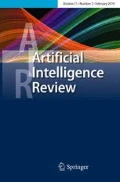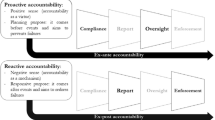Abstract
In this paper we discuss the strengths and weaknesses of a range of artificial intelligence approaches used in legal domains. Symbolic reasoning systems which rely on deductive, inductive and analogical reasoning are described and reviewed. The role of statistical reasoning in law is examined, and the use of neural networks analysed. There is discussion of architectures for, and examples of, systems which combine a number of these reasoning strategies. We conclude that to build intelligent legal decision support systems requires a range of reasoning strategies.
Similar content being viewed by others
Author information
Authors and Affiliations
Rights and permissions
About this article
Cite this article
Zeleznikow, J., Hunter, D. Reasoning paradigms in legal decision support systems. Artif Intell Rev 9, 361–385 (1995). https://doi.org/10.1007/BF00849064
Issue Date:
DOI: https://doi.org/10.1007/BF00849064




